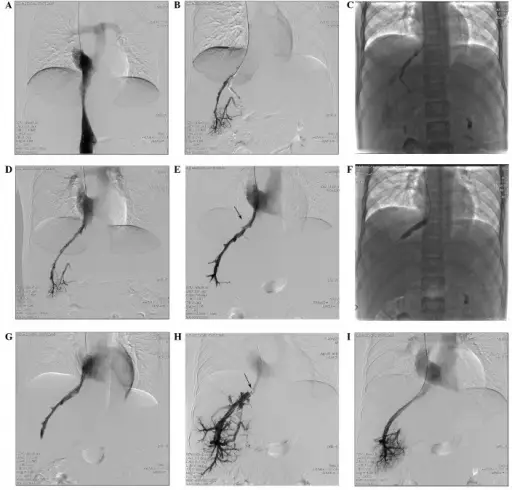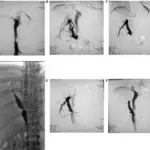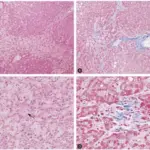Hepatic vein thrombosis is an obstruction in the hepatic veins of the liver.
What is the Pathology of Hepatic Vein Thrombosis?
The pathology of hepatic vein thrombosis is:
-Etiology: The cause of hepatic vein thrombosis is blood clot/thrombosis.
-Genes involved: Potentially clotting abnormalities.
-Pathogenesis: The sequence of events that lead to hepatic vein thrombosis includes outflow obstruction, patients often have decreased portal perfusion with an eventual compensatory increase in arterial inflow.
-Histology: The histology associated with hepatic vein thrombosis shows severe centrilobular congestion/necrosis, progressing to centrilobular fibrosis.
How does Hepatic Vein Thrombosis Present?
Patients with hepatic vein thrombosis typically affect males present at the age range of 35-55. The symptoms, features, and clinical findings associated with hepatic vein thrombosis include the buildup of fluid in the abdomen, enlarged liver, nausea, and vomiting, vomiting blood, unexplained weight loss, enlarged spleen, swelling of lower limbs, abdominal pain, and jaundice.
How is Hepatic Vein Thrombosis Diagnosed?
Hepatic vein thrombosis is diagnosed using ultrasound, CT scan, or biopsy.
How is Hepatic Vein Thrombosis Treated?
Hepatic vein thrombosis is treated with fibrinolytic drugs.
What is the Prognosis of Hepatic Vein Thrombosis?
The prognosis of hepatic vein thrombosis is good with the current 10-year survival rate to be 75%.



